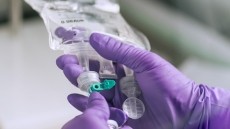Patheon and Senopsys in tasty deal
Senopsys to offer pharma companies combined services to test and
improve drug flavour.
Under the partnership, the companies will combine their expertise to offer their respective clients a wider range of solutions aimed at speeding up the development of their drugs by optimising palatability. Both companies should benefit from this collaboration as Senopsys' clients will have access to prototype drug formulations manufactured by Patheon, while the US contract manufacturer will be able to offer its customers taste assessment and optimisation services - an area in which Senopsys has made itself a strong reputation in recent months. "This collaboration with Patheon enhances Senopsys' ability to conduct taste assessment and optimisation studies that require the use of good manufacturing practices (GMP) materials," said Jeff Worthington, founder and president of Senopsys. Indeed, what Patheon brings to the deal is its capacity to quickly and cost-effectively manufacture small-scale batches of prototype drug formulations under GMP conditions - a capability that Senopsys does not have at present. "With Patheon's development and manufacturing capabilities and Senopsys' taste optimisation expertise, our companies will be able to provide our clients with expanded options for accelerating the clinical and commercial development of their drug products," said Worthington. US-based Senopsys is a new player in the formulation development services arena that offers technologies used in the food industry to improve drug palatability. The company uses proprietary sensory assessment tools to identify the sensory attributes of drug substances, quantify taste masking challenges, and measure the flavour quality - or palatability - of drugs. Furthermore, Senopsys works with drug developers to assess the suitability of novel dosage forms for specific drugs and develop new formulation systems for both investigational and already approved drugs. "The combination of Senopsys' significant expertise in taste assessment and optimisation with our broad development capabilities will provide an excellent platform for supporting our clients with additional solutions for their drug products requiring taste masking," said Dr Shabbir Anik, Patheon's president of Global Pharmaceutical Development Services. "We have a number of clients who are interested in developing palatable dosage forms to support paediatric regulatory requirements for investigational new drugs and life cycle management initiatives for approved drugs," said Dr Anik. Drug manufacturers have been increasingly trying to tackle drug palatability issues by introducing new dosage forms, such as fast dissolving tablets, oral films and soft chews, that are more convenient and easier for children, the elderly and impaired patients to swallow. However, most of these dosage forms have their own set of hurdles, including taste masking, hardness, texture, stickiness, and ease-of-swallowing, that drug makers must address to create an acceptable product for patients. "Developing palatable drug formulations for specific patient groups can be a daunting challenge," said Worthington back in January when he announced the launch of his company's service. "The paediatric market, for example, is particularly tricky - and likely the reasons that drug developers have not introduced more paediatric medications despite regulatory requirements and incentives to do so. Many of the dosage forms that work for adults, such as tablets and capsules that bypass taste receptors simply are not age appropriate for children." Senopsys claims it has the expertise to develop palatable dosage formulations that are acceptable to any patient group. Although it is still a niche market - 80 per cent of oral dosage forms are capsules and tablets - it is an important one, according to Senopsys, as drug makers are becoming more and more aware of the fact that improving pharmaceuticals' palatability can have a strong impact on drug acceptability and market potential. The company believes that a drug product's aesthetics - aroma, flavor, texture, mouthfeel - can have a dramatic effect on patient compliance, health outcomes and product sales.










